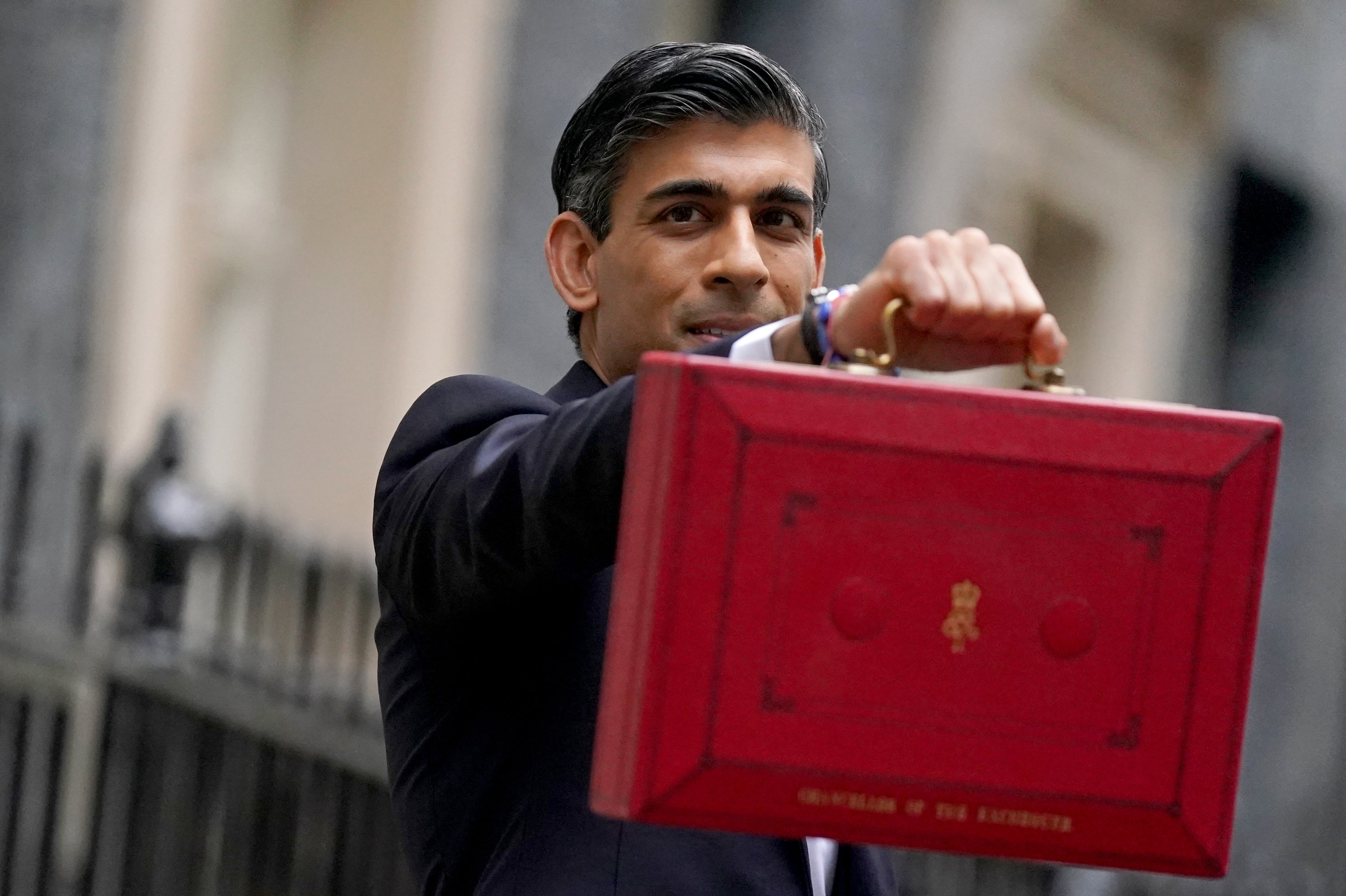MPs call for probe into leaking of ‘market-sensitive’ information before Budget
The Treasury Select Committee said it is “deeply concerned” the rises in the National Living Wage were leaked ahead of the Autumn statement.

Your support helps us to tell the story
From reproductive rights to climate change to Big Tech, The Independent is on the ground when the story is developing. Whether it's investigating the financials of Elon Musk's pro-Trump PAC or producing our latest documentary, 'The A Word', which shines a light on the American women fighting for reproductive rights, we know how important it is to parse out the facts from the messaging.
At such a critical moment in US history, we need reporters on the ground. Your donation allows us to keep sending journalists to speak to both sides of the story.
The Independent is trusted by Americans across the entire political spectrum. And unlike many other quality news outlets, we choose not to lock Americans out of our reporting and analysis with paywalls. We believe quality journalism should be available to everyone, paid for by those who can afford it.
Your support makes all the difference.Politicians on an influential committee have accused the Government of leaking market-sensitive information in the run-up to the last Budget.
MPs on the Treasury Select Committee criticised leaks of details about hikes to the National Living Wage saying they are “deeply concerned” and calling for an investigation.
The Treasury said the minimum wage rise announcement was being co-ordinated by the Department for Business but said it would review arrangements to avoid future leaks.
Permanent secretary to the Treasury, Tom Scholar, wrote to the committee saying he did not believe the wage hike announcement for workers aged over 25 constituted market-sensitive information because it was an “economy-wide measure”.
However, the committee hit back, saying it believed the announcement could be seen as market sensitive because it affects certain companies with high numbers of low-paid workers compared to other businesses.
In its report on the Autumn Budget, the committee said: “We are deeply concerned that the rate of the National Living Wage was disclosed to ITV in an unauthorised fashion prior to the Budget, and we agree with the Treasury that this could have caused confusion in the market as to whether the information was accurate.
“The rate at which the National Living Wage is set will clearly affect some companies and sectors which have large numbers of staff at the minimum wage more than it affects others who do not.
“Some of those firms will be listed on the stock exchange. We therefore believe that the policy may be considered to be inside information as defined by the FCA’s Best Practice Note on the Market Abuse Regulations.
“In addition, given that the ONS (Office for National Statistics) deems retrospective wage data to be market sensitive, we believe it is not unreasonable to conclude that the announcement of the change to the National Living Wage rate might have been market sensitive.”
It added: “The Government should investigate how this policy came to be leaked prior to the Budget and should publicise its findings.”
Looking at the details of the Budget, the committee said Chancellor Rishi Sunak had a difficult job in balancing the books under new fiscal rules.
Setting out an economic policy of promoting high wage growth that is not accompanies by increases in productivity will be inflationary and risks contributing to a wage price spiral
It said the Office for Budget Responsibility (OBR) believes the Treasury has a 55% to 60% chance of hitting his targets and warned “the headroom may prove insufficient should one of the many risks to the economy crystallise”.
Committee chairman Mel Stride MP said the narrow headroom meant tax cuts later in this parliament could prove difficult if the Government was to stick with its new fiscal rules.
He added: “In October, there was little room for manoeuvre but there has been positive news from the public finances since then. While further good news may help him achieve this ambition, significant risks remain, most notably from the impact of inflation.”
Mr Stride’s warning over inflation was also highlighted in the report, which said it could hit the Chancellor’s plans because higher inflation would lead to bigger interest payments on Government debt.
The report also suggested the Government’s focus on driving higher wages through creating more skilled jobs, alongside rises in the National Living Wage by 6.6% to £9.50 an hour, could all contribute to higher inflation.
The MPs said: “Setting out an economic policy of promoting high wage growth that is not accompanied by increases in productivity will be inflationary and risks contributing to a wage price spiral.
“The Treasury should keep these risks at the forefront of their thinking when designing policies at future fiscal events.”
Meanwhile, the committee also criticised proposed changes to funding for adult social care in England, saying the lifetime cap is far less generous than proposals put forward under the Dilnot Review.
MPs said: “It is regrettable that such a large cohort of people are still exposed to the possibility of incurring these high costs, which make up a large proportion of their assets. Compared to the original Dilnot proposals, this will be regressive.”
The committee welcomed the changes to the Universal Credit taper rate, but said the Government should “think carefully” about how it intends to support such people during the impending cost of living crisis.
And there are warnings that, despite real-term rises in Government departmental spending, these could fall if ministers agree to cut taxes before the end of the current parliament.
A Treasury spokesperson said: “The Treasury followed the principles set out in the Macpherson Review on pre-Budget press briefing and did not pre-release the core of the Budget.
“We share the committee’s concerns about the unauthorised disclosure of the National Living Wage rate prior to the Budget and the Government will review the arrangements ahead of future announcements.”